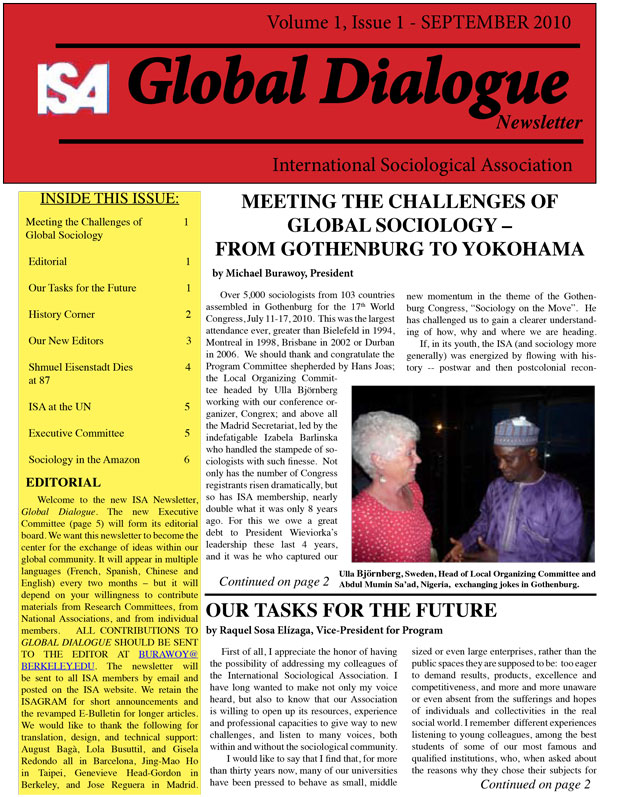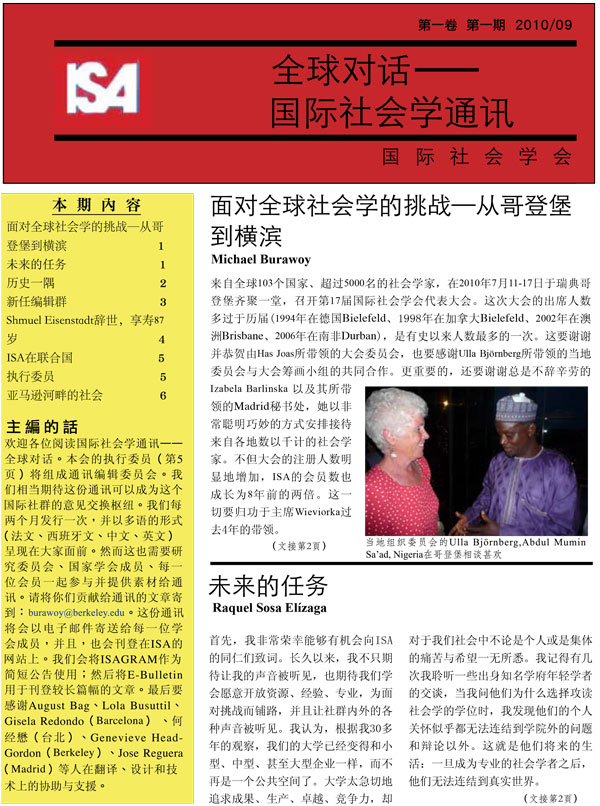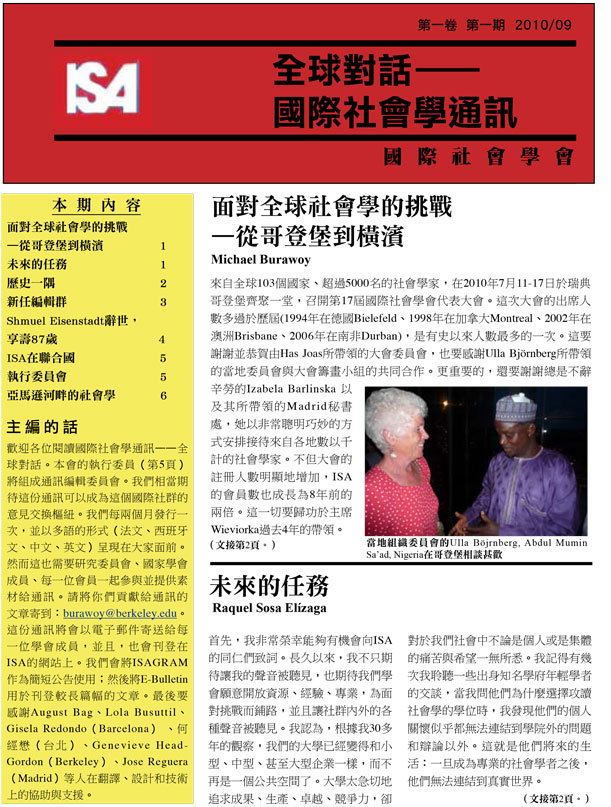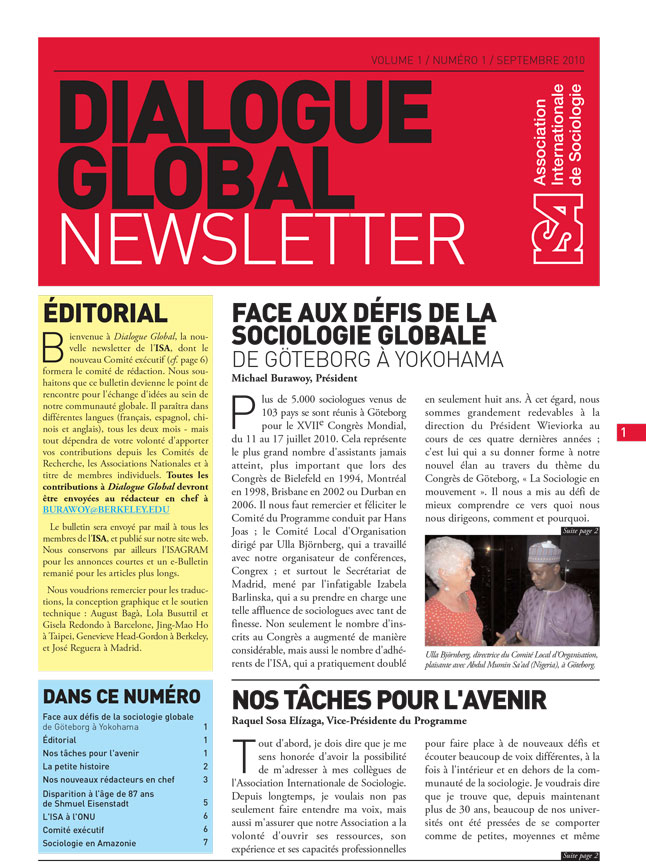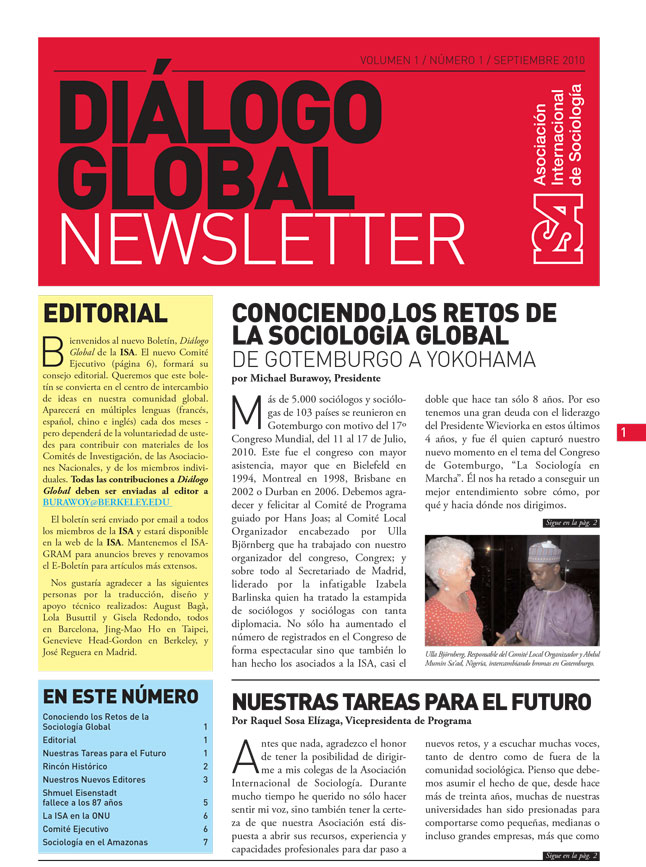Shmuel Eisenstadt Dies at 87

September 24, 2010
Shmuel Noah Eisenstadt had the career of a world leader in sociology. One of the most widely published scholars, he was awarded the highest honors that could be bestowed on a sociologist and was regularly invited to be a keynote speaker at international congresses even in the last years of his long and busy lifetime. The list of accomplishments in the obituary compiled by Gad Yair almost has the flavor of a Weberian ideal type.
For Israeli sociologists in particular and for Israelis in general, Professor Eisenstadt was not an abstract type. He was a human being and a power in the local sociological community that none else has matched to date. Shmuel Noah Eisenstadt was a man of many sides and influence far beyond what we can understand from the prizes -- I would like to write about what his contribution within Israel means even now.
As a young man, rather stocky and with a shock of red hair, Shmuel Eisenstadt studied with Martin Buber at the Hebrew University where sociology was taught as subsidiary to philosophy. After completing his dissertation with Talcott Parsons at Harvard, he returned to Israel and set up the first Department of Sociology and Anthropology in the country. As head of the department, he was at the center of power in the profession. Professor Eisenstadt also founded the Israel Sociological Society and was elected its first president. Even beyond his term of office, it is safe to say that until the 1990s, his word was law in the world of Israeli sociologists. On the personal level, Professor Eisenstadt and his wife, Shulamit, often invited colleagues and students to his home. Warmly hospitable, Shmuel also showed a sense of humor, which, although not rollicking, was good-hearted, and subtle.
My personal memories of Shmuel Noah Eisenstadt are a conglomeration of impressions from fleeting personal encounters and reservations about his writings to a very late friendship. Let me start with the end. Eisenstadt was invited to be among the first distinguished contributors to Sociopedia.isa and he was kind enough to agree to write an entry on 'multiple modernities'. Although he was notified at the outset that every entry should be no longer than 6000-7000 words, the paper that he sent was more than three times as long. Because I was interested in getting a handle on his mature statements about modernity, I agreed to try to edit the entry down to a viable length. This was on the condition that Professor Eisenstadt would not know who had done it. My fear was that he would be insulted by having to give up more than half of what he had written, and would be especially angry to know that an Israeli had done the hatchet work. Much to my surprise, he was in fact pleased by the edited version and as a result I came out of hiding and we corresponded frequently. It turned out that Professor Eisenstadt was a reader of the International Sociology Review of Books, and found it very useful. He wanted to know about the other Sociopedia entries I could send him. He read them, and, enthusiastically suggested that Sage publish monographs to accompany the entries in Sociopedia. Had the idea been approved by the Publications Committee, he was eager to expand his own entry into a monograph immediately. Although this idea was not realized, it may very well be that the entry written for Sociopedia.isa was the last, or one of the last pieces of work that he produced.
In the course of our correspondence, Professor Eisenstadt invited me to visit him, and I planned to do that soon, but Jerusalem is apparently much farther from Haifa than is Gothenburg. Somehow it didn't work out. The truth of the matter is that the possibility of meeting Professor Eisenstadt as a colleague and friend was in a sense frightening. The correspondent who was tolerant of and highly interested in different approaches to sociology was not the person I remembered from my knowledge of his long term project on the study of Israeli society. That was carried out with quite a specific agenda which had wide-ranging personal as well as professional implications.
Shmuel Noah Eisenstadt was indeed the founder of Israeli sociology and for a long time every person in Israel, including newcomers who had to wrestle with government bureaucracy, professional social scientists, and even students who registered for a single introductory course, were touched by him and his work. For students, Eisenstadt made sociology accessible by writing in Hebrew. His introduction to sociology was the first of its kind and required reading for at least twenty years. With his students in Jerusalem he was the first to carry out systematic research projects on Israeli society. Collections in Hebrew of the work of these teams were the first indigenous textbooks – meaning the only work in sociology that native Israeli students were likely to read. But those projects had an impact far beyond the halls of the university. In the first heady decades of the new state, the teams headed by Eisenstadt were contracted to study the efficiency of the government bureaucracy, the adaptation of newcomers to unfamiliar milieus, their absorption into unfamiliar kinds of work, the success of immigrant children in schools, and so on. Miraculously, research findings according to structural-functionalist analysis tallied with the declared political goals of the ruling coalition governments and provided an acceptable scientific basis for guiding government policy, as well as for reading government intentions as constructive and beneficial. Thus from the first, professional sociology was presented in terms that were an integral part of the public agenda.
Strict adherence to the assumptions and methods of structural functionalism was expected of all who enrolled in the department then. A colleague remembers that in listening to Professor Eisenstadt's lectures she and her future husband, like most of their peers in the classroom, were enticed with the idealistic Zionist arguments elegantly phrased in the language of sociology. Very few found it possible to argue for a different viewpoint. In her class, the only one who tried to put forward another view was Baruch Kimmerling (1939-2007), whose work on Israeli society later diverged sharply from the structural-functionalist orthodoxy. This, however, took some time. As a professor from Germany remembers it, when he came to the Hebrew University as a foreign student to carry out a doctoral study of the development of Israel's religious parties, Professor Eisenstadt told him in no uncertain terms to forget the 'nonsensical phenomenological approach' which was the basis of his research design because it 'is not sociology'.
The fact is that the structural-functionalist approach as developed by Professor Eisenstadt became the science of sociology in all the universities. As each new university was set up in the 1960s and the early 1970s (Tel Aviv, Bar Ilan, Haifa, Beersheba), students who had completed their doctoral studies at the Hebrew University under Eisenstadt's direct or indirect tutelage, were the natural candidates for positions in the new departments of sociology. For many years, his opinion on the work of a sociologist determined that person's future. In terms of sociology, it meant that orthodoxy in Parsonian functionalism was the criterion for appointments, for tenure, for promotion.
My own first acquaintance with Professor Eisenstadt was while I was junior editor of a modest journal published in Haifa from 1978 to 1983, Mahberot l'Mehkar ul'Vikoret [Notebooks of Research and Critique]. The moving spirit behind the Notebooks was Henry Rosenfeld, a Marxist anthropologist who transferred to Haifa from Jerusalem and felt it was necessary to make critical social science known to readers of Hebrew. One of the first articles we published was written by Debby Bernstein and Shlomo Swirski who elaborated a critical analysis of the political implications of the structural-functionalism disseminated at the Hebrew University, and proposed an alternative theoretical viewpoint. Shlomo went on to write a book to defend the idea that immigrants to Israel from the Arabic-speaking countries who had not adapted to 'normal' Israeli life and their children who were famously failing in school and lowering the standards, were not really 'weak', or 'culturally retarded', but were being deliberately and systematically 'weakened' (Lo Nechshalim, ella M'nuchshalim). As keynote speaker at the annual meeting of the Israel Sociological Society, Professor Eisenstadt denounced the interpretations that were presented in the Notebooks in no uncertain terms as a misreading of reality and a complete misunderstanding of sociology. Of course, this presentation provoked a great deal of discussion, much of it irate. For the journal's editorial team it was an unpleasant run-in. For the author of the 'outrageous' book, the opposition was crucial, because he was coming up for tenure, and it was denied.
But this was not the end of the story. Professor Eisenstadt never deserted his convictions that structural functionalism was the only viable way to understand sociology. But he, too, realized in subsequent years, that the perception that Mizrahi immigrants were congenitally culturally retarded could not be taken to be the whole truth. And in the mid-1980s he openly admitted, again in a keynote speech at an ISS annual conference, that 'we were wrong in many of our analyses'.
As my recent, and sadly abruptly ended, contacts with him showed, the professionalism and the personality of Shmuel Noah Eisenstadt cannot be summed up by citing the honors he collected or by referring to the arguments in which he was embroiled. Throughout his 87 years, Eisenstadt was a sociologist driven by curiosity and gifted with untiring energy that enabled him to keep studying difficult social problems until he felt he had reached a core solution. More, he was endowed with open-mindedness and the intellectual generosity that enabled him to recognize and retract errors that he discovered in his own work.
September 2, 2010 was indeed a sad morning when his secretary had to notify friends that he had passed away in the Shaarei Tzedek Hospital. Her letter ends with a gesture that all of us share: Professor Eisenstadt will be greatly missed.
Devorah Kalekin-Fishman, University of Haifa, Israel

